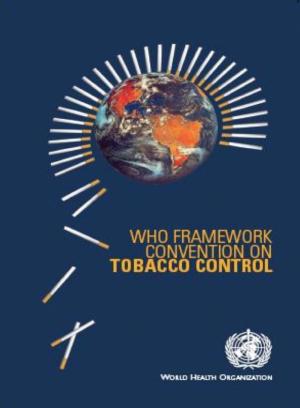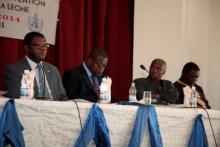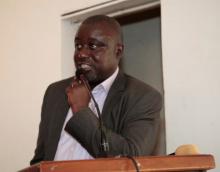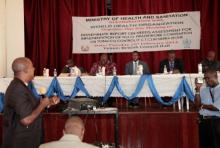Sierra Leone Disseminates WHO Framework Convention on Tobacco Control Assessment Report
Background
The World Health Organization Framework Convention on Tobacco Control (WHO FCTC) is the first international health treaty negotiated under the auspices of the WHO and was adopted by the World Health Assembly in May 2003. It has since become one of the most widely and rapidly embraced treaties in the history of the United Nations, with 176 Parties to date.
The Republic of Sierra Leone ratified the WHO FCTC on 22 May 2009 as the 165th country to do so. The Convention entered into force for Sierra Leone on 20 August 2009.
It is evident that the rate of smoking and the exposure to second hand smoking are high. Data from the WHO STEPs Survey 2009 and Global Youth Tobacco Survey 2008 indicate that about one quarter (26%) of people smoke tobacco; approximately three quarters (74% and 69%) of the non-smoking population are exposed to environmental tobacco smoke (ETS) at home and in the workplace respectively.
A global youth’s tobacco survey conducted in secondary schools, Western Area in 2008 found that 27% of males and 5% of females aged 15 and above had a history of smoking, either as active smokers or are being exposed to tobacco smoke.
Needs Assessment
The Convention recognizes the need to generate global action so that all countries are able to implement its provisions effectively. The Conference of Parties (COP) requested that detailed needs assessments be undertaken at country level, especially in developing countries and countries with economies in transition, to ensure that lower-resource Parties receive the necessary support to fully meet their obligations under the treaty.
A needs assessment exercise for implementation of the WHO FCTC was conducted jointly by the Government of Sierra Leone and the Convention Secretariat in 2013. The exercise was aimed at identifying the objectives to be accomplished under the WHO FCTC, resources available for implementation including gaps.
A desk review of the available information was followed by a mission of an international team from the Convention Secretariat, the World Bank, the WHO Regional Office for Africa, and the WHO Office in Sierra Leone in May 2013.
The assessment involved relevant ministries and agencies. An assessment report was developed and presents an article-by-article analysis of the country’s progress in implementation; the gaps that may exist and the subsequent actions to address the gaps.
Dissemination Meeting
A one day dissemination meeting was held at the British Council Hall to share key findings of the assessment with stakeholders. At the meeting statements were delivered by the WHO, Health for All Coalition and The Chief Medical officer, Ministry of Health and Sanitation.
In his Statement, the WHO Representative Dr Jacob Mufunda highlighted that the use and exposure to tobacco is very high in the country and the need for government with support from partners to accelerate the implementation of the FCTC to prevent Non Communicable diseases.
The Chairman of the Health for All Coalition Mr Charles Mambu advocated that tobacco use must be legislated.
The Chief Medical Officer Dr Brima Kargbo while making his opening statement reiterated government’s commitment.
The Director of NCDs and Research Dr Mohamed Samai presented the assessment report highlighting the implementation status, gaps and recommendations.
The assessment report indicates that there are a number of gaps in the implementation of the FCTC in the country among which includes funding for the implementation of both the NCD and Tobacco Control Plans. In addition, support from other government ministries, department and agencies has been minimal.
Key among the recommendations is the development and implementation of a communication strategy on tobacco related issues, the need to legislate tobacco and for government to allocate funding for tobacco control.
By: Ms Aminata Grace Kobie, WHO Health Promotion Officer







